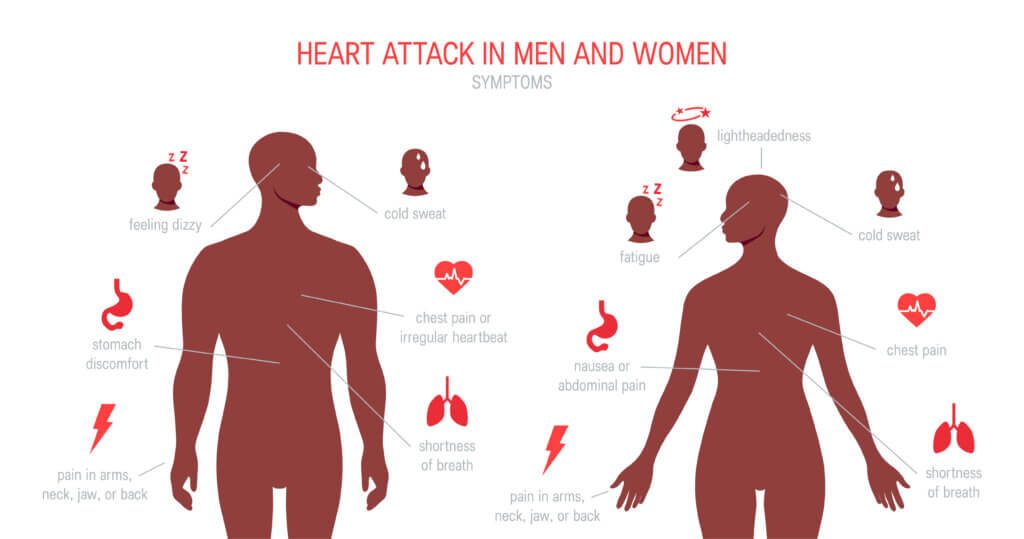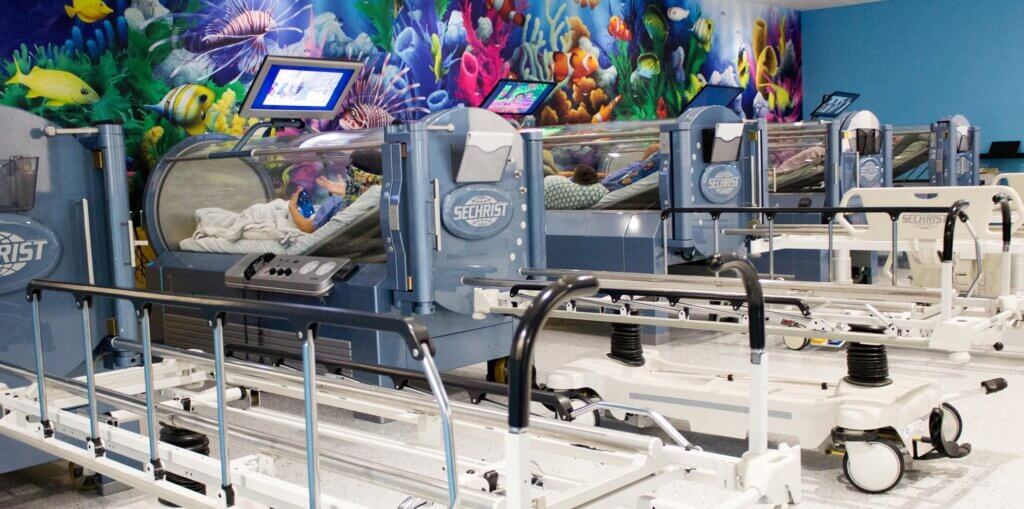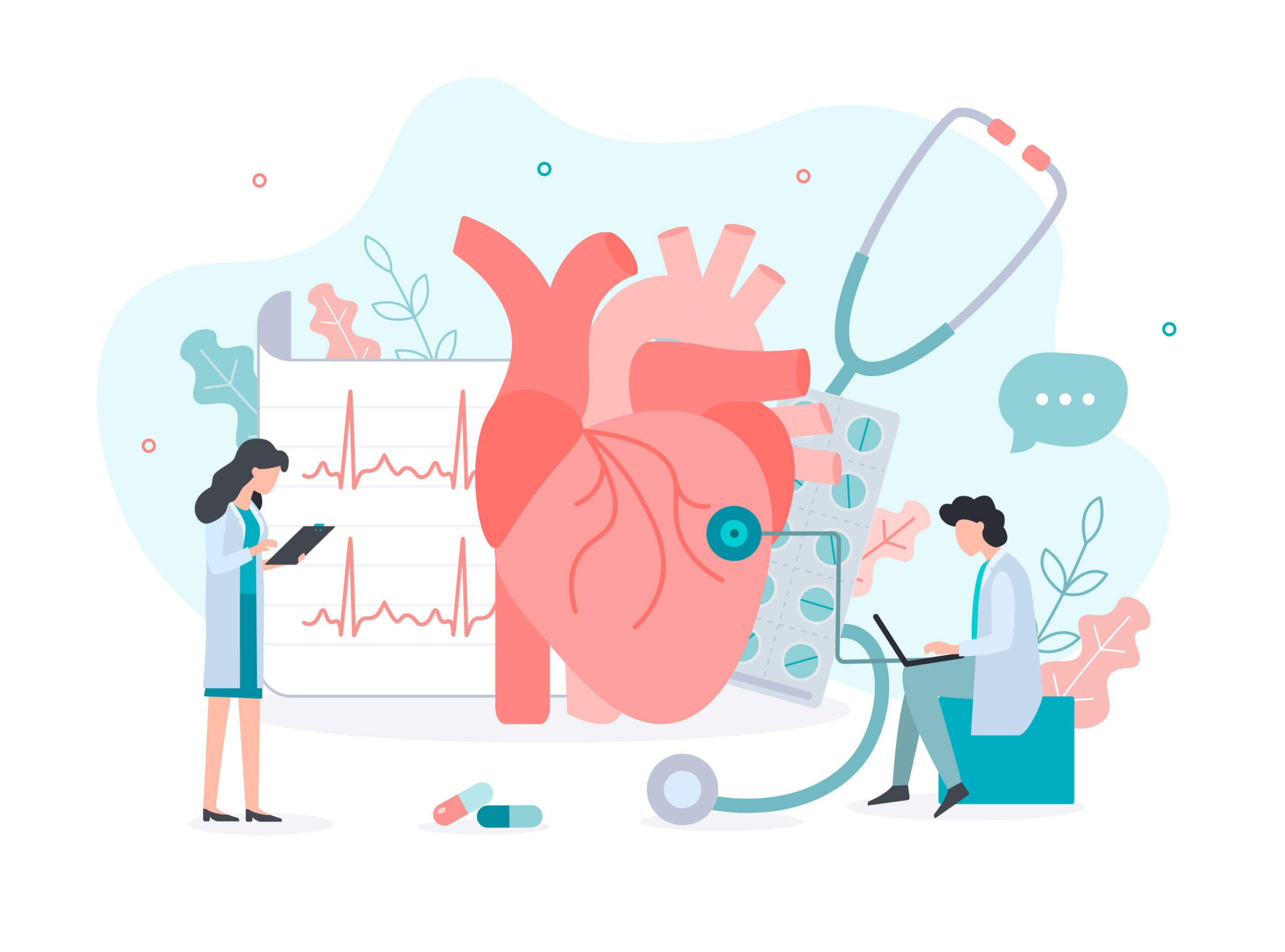You’ve Just had a Heart Attack… Now What?
I know from personal experience how terrifying it is when you hear that a loved one is having a heart attack. Your stomach drops, your body turns cold, and time seems to freeze. Everything that may have been taken for granted previously is suddenly called into question. What’s happening? Will they be okay? What do I do? What if…?
Despite the fear and uncertainty that comes with a heart attack, it’s important to remember that recovery is possible. Whether you or a loved one have recently experienced a heart attack, or if you’re simply looking for ways to protect your cardiovascular health, we can help provide you with the information you need to make informed decisions about your care and well-being.
What Causes a Heart Attack?
A heart attack happens when blood flow to the heart is blocked, causing damage or death to part of the muscle. The most common cause of heart attacks is coronary artery disease, where plaques in the arteries restrict blood flow. High blood pressure, smoking, high cholesterol, diabetes, family history, obesity, and physical inactivity are also common causes. To reduce the risk of heart attacks, people can make lifestyle changes such as quitting smoking, eating a healthy diet, exercising regularly, and working with their healthcare team.

Side Effects of a Heart Attack
A heart attack can have a range of physical and emotional side effects that may persist for varying periods of time after the event. Here are some of the most common side effects:
- Chest pain or discomfort: You may experience chest pain or discomfort, which can range from mild to severe, for several days or weeks.
- Shortness of breath: You may experience shortness of breath, especially during physical activity, for a few weeks or months.
- Fatigue: You may feel very tired for several weeks or months, which can make it difficult to perform everyday tasks and activities.
- Weakness: You may feel weak, especially in your arms and legs, for several weeks or months.
- Swelling in legs, ankles, or feet: You may experience swelling in your legs, ankles, or feet, which can be a sign of fluid buildup in your body.
- Irregular heartbeats: You may experience irregular heartbeats, called arrhythmias, for several weeks or months.
- Depression: You may experience feelings of depression, anxiety, or stress, which can be common among people who have experienced a major health event.
- Cognitive changes: Some people may experience cognitive changes, such as memory loss or confusion, which can be temporary or permanent.
- Sexual dysfunction: You may experience sexual dysfunction, such as decreased libido or erectile dysfunction, for several weeks or months.
These side effects can vary from person to person and can persist for different lengths of time. It’s important to talk to your doctor about your symptoms and any concerns you have, so that you can receive the support and treatment you need during your recovery.
What to Expect After a Heart Attack
After a heart attack, physical and emotional symptoms are common along with the recovery process. Physical symptoms such as chest pain, shortness of breath, and swelling in the legs can persist for a few days or weeks. Hospitalization is necessary for most people, and medications will be prescribed to manage heart health. Additionally, lifestyle changes and follow-up appointments with the doctor are recommended. Emotional symptoms are common (like anxiety, depression, and stress) and support from friends, family, and mental health professionals can help. It’s essential to work closely with your healthcare team and make positive changes to increase your chances of a successful recovery and reduce the risk of future heart attacks.
How The Oxford Center Can Help
At The Oxford Center, we know how important it is to make sure our loved ones are receiving the best care possible. That’s why we offer multiple therapies and options to help heart attack survivors on their way to recovery and prevention. Our medical center uses research-based, alternative treatments to provide you with the highest quality care. We are here to offer you hope for healing when you may not have had many options.
Hyperbaric Oxygen Therapy (HBOT)

Hyperbaric oxygen therapy (HBOT) is a treatment that involves breathing pure oxygen in a pressurized chamber. This increased oxygen flow can help to speed up the healing process and promote your recovery. Some benefits of HBOT for heart attack survivors include:
- Improving Heart Health: HBOT has been shown to improve heart health by increasing the oxygen supply to the heart and reducing inflammation. This can reduce the risk of having another heart attack and improve overall heart health.
- Stimulating Healing: HBOT can stimulate the body’s natural healing process, which can repair damaged tissue and reduce inflammation. This can speed up the healing process and reduce the risk of having another heart attack in the future.
- Reducing Inflammation: HBOT can also reduce inflammation in the body, which is a common contributor to heart disease. By reducing inflammation, HBOT can improve heart health and reduce the risk of having another heart attack.
Research suggests that HBOT treatments may decrease mortality rate by 50%. HBOT can reduce the volume of damaged muscle and decrease the risk of adverse cardiac events. According to research, HBOT induces neuroplasticity and significantly improves symptoms in those with cognitive impairment after a heart attack. Research has also shown that the addition of HBOT can make it possible to increase the 5-year survival rate after a heart attack from 84.4% to 95.9%.
Hyperbaric oxygen treatments have been extremely successful for heart attack patients here at The Oxford Center. We have had patients swear their HBOT treatments are the only reason they’re alive today, and patients that have reported back to their doctor showing no signs of damage or scarring after having HBOT treatments following their heart attack.
Nutritional Services

Your diet is a common thing to change after having a heart attack. Nutritional services can play a critical role in the recovery and long-term health of heart attack survivors. Luckily, we offer nutritional services at The Oxford Center to help you on your journey. Nicole, our Functional Nutrition Therapy Practitioner (FNTP) is ready to help you learn more about food, your body, and what foods will work the best for you, your life, and your health. We offer highly customizable individual and group classes that can give you whatever level of support you need while providing guidance in what will work best for you. We will work with the you to develop a personalized nutrition plan that takes into account your specific health needs and dietary restrictions Clients find that it is empowering knowing that you can change and improve your health without needing help from anything else.
Physical Therapy

Heart attack survivors often struggle with physical endurance and strength after an attack, and some may have even sustained physical impairments as a side effect. Physical therapy can be a critical part of the recovery process for heart attack survivors. It can help rebuild strength, increase flexibility, and improve overall physical function after the event. At The Oxford Center, a physical therapist will work with you to develop a program that is tailored to your individual needs and abilities. This can include a variety of exercises, such as cardiovascular activities, strength training, and range-of-motion exercises. Your therapist may also work with you on balance and coordination exercises, which can be especially important for older adults who may be at increased risk of falls after a heart attack. By working with a physical therapist, heart attack survivors can regain their physical abilities and improve their overall health and well-being.
